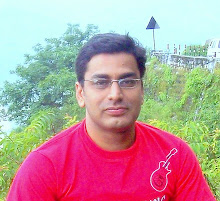Quotas as incentives
Tuesday, July 22, 2008
 THE TWO RECENT rulings by the Supreme Court (S.C.) in the matter of admissions to post-graduate medical courses serve as timely reminders on establishing norms and special procedures that must govern selection criteria. When it upheld the Rajasthan Government's decision to increase the percentage of seats reserved for Government doctors to post-graduate courses, the S.C. merely reinforced the rationale behind the time-tested scheme of offering incentives for enrolment in Government service, namely, the promotion of the public interest that such a measure would serve. Alternatively, in quashing the scheme of reservations to post-graduate courses in the All India Institute of Medical Sciences (AIIMS) for its former students, the apex court underscored the necessity to adhere to the elementary principle of fair play in admission procedures. That an institution's policy aimed to preferentially treat its alumni without regard to merit is a gross violation of the norms of fair competition hardly needs emphasis. The anomaly is all the more glaring considering that the AIIMS is one of the premier medical institutions in the country with a national representation.
THE TWO RECENT rulings by the Supreme Court (S.C.) in the matter of admissions to post-graduate medical courses serve as timely reminders on establishing norms and special procedures that must govern selection criteria. When it upheld the Rajasthan Government's decision to increase the percentage of seats reserved for Government doctors to post-graduate courses, the S.C. merely reinforced the rationale behind the time-tested scheme of offering incentives for enrolment in Government service, namely, the promotion of the public interest that such a measure would serve. Alternatively, in quashing the scheme of reservations to post-graduate courses in the All India Institute of Medical Sciences (AIIMS) for its former students, the apex court underscored the necessity to adhere to the elementary principle of fair play in admission procedures. That an institution's policy aimed to preferentially treat its alumni without regard to merit is a gross violation of the norms of fair competition hardly needs emphasis. The anomaly is all the more glaring considering that the AIIMS is one of the premier medical institutions in the country with a national representation.
Turning to the larger question of quotas for in-service candidates, this was created as an incentive to retain young medical graduates in Government service. Accordingly, practising doctors who enrolled for post-graduation through such a quota were expected to serve in Government hospitals for a period of about five years subsequent to the completion of the degree. The disrepute that the service quota system has fallen into is clearly on account of the failure of the state to enforce relevant rules. Perhaps non-enforceability was built into the terms of the contract, since its premature termination through devious means always remained a possibility once the candidate obtained the degree. In that case, the current policy should be revised so as to commit young doctors first to a minimum period of service in the Government as a prerequisite to securing a seat for post-graduation under this quota.
The need to attract fresh graduates to serve in state-run hospitals can hardly be over-emphasised in the current climate of rapid privatisation of health services. The fact that the philosophy that underlay the scheme of incentives which came into vogue a few decades back runs counter to the rationale that informs cuts in health expenditure by the state is of course a separate matter. But to the extent that the state will continue to remain a key player in the health care delivery system, the quality of service conditions in Government hospitals would have to be addressed on a priority basis. For only these are the avenues open to those imbued with hope and idealism to renew the Nehruvian pledge to redeem the teeming millions of India from disease. Moreover, a recognition of the imperative to gear up the public health care machinery would further lend credence to the fundamental case for liberalisation, i.e., to retain core services in basic health and education as a responsibility of the state, while allowing the market to step into other arenas. On the practical side, rules and regulations that have room for abuse built into them should not be allowed to jeopardise sound principles premised upon loftier objectives. For, the need for qualified professionals in remote regions cannot be wished away simply because doctors do not feel inclined to rough it out.



0 comments:
Post a Comment